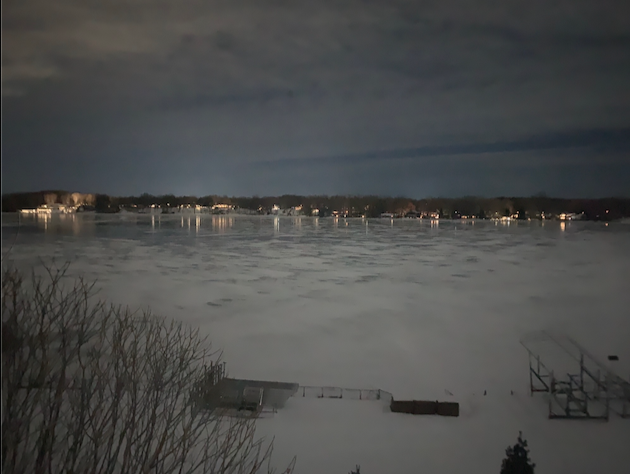Reeds’ Lake health is crucial to the community
Through countless holidays, social gatherings, and long summer days, Reeds Lake has remained a constant in East Grand Rapids and an essential part of life in our community. Throughout the many years, it has been here, residents have relied on it for activities ranging from jet skiing to ice fishing and everything in between. However, in order to support the busy lake life, the overall health of the lake must be well maintained. Mr.LaFave, the deputy city manager for East Grand Rapids, helps make sure that happens.
“One thing that is unique about Reeds Lake is that it never had any industry around it. It has been a residential community but has never had any manufacturing or industrial type of use adjacent to it that is more common in more urban areas,” LaFave said.
This has given Reeds Lake an advantage in terms of being cleaner and better to use for residents. With there being so many facilities around Reeds Lake that produce waste, it is important to have an implemented plan that stops the waste right in its tracks. This is where LaFave and the City come into play. Within this watershed, the city has placed filtration systems surrounding the lake to stop pollution from making its way from the streets to the water.
“Water has to pass through a series of chambers that filters out any sort of pollution, such as oil, or trash,” LaFave said.
John Collins Park and the community center are two major communal places that each have these high-grade filtration systems.
On a much smaller scale, there are many ways that residents can unknowingly leave their mark in or around the water.
“We encourage people to take care of their lawns right by their home because it does affect everything downstream. We put out information in order to make sure that residents don’t blow their grass clippings and other things like that into the street because that is one of the things that actually enriches phosphorus,” LaFave said.
Fertilizer, along with other organic matter, disrupts the nutrient enrichment of the lake and, in turn, disrupts the ecosystem.
While there are minor issues with the lake’s health, it is overall a very healthy and historically well-maintained body of water.
“From reviewing our records and past studies, we see predecessors going back generations for the city that have been really good stewards of Reeds Lake,” LaFave said. “We have the benefits of today because of the environmental stewardship of people that worked for the city and lived in the community in the past that also treated it as an asset for the community, just as we do today.”
Some ways that community members can step up to help include putting grass clippings in yard waste paper bags, regulating fertilizer use, and cleaning the undersides of water vessels to prevent invasive species.






